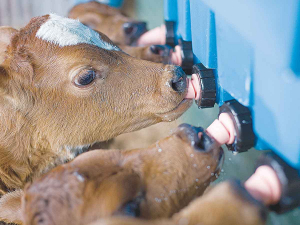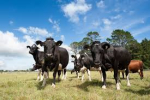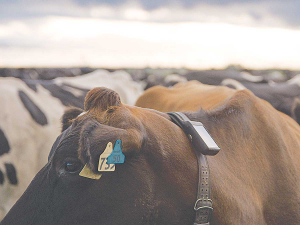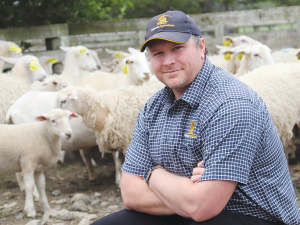Calves that are cared for well have a reduced risk of disease and cost less to rear, says DairyNZ.
In its Caring for Calves booklet, the dairy industry good organisation says well-looked after calves grow faster and go on to be stronger well grown replacements. It also adds that such calves also develop into valuable, productive adults or that will be fit and strong enough to be transported at four days of age as bobby calves.
“Healthy calves also make the whole farm team’s life easier, more rewarding and are something to be proud of.
“Good biosecurity practices can also help keep calves and the farm team healthy.”
DairyNZ recommends farm workers washing their hands with soap and warm water regularly, especially before eating, drinking or smoking.
“Have a separate pair of farm clothing and boots to use around calves and clean these regularly,” it advises.
“Prevent visitors from entering the shed – the more people that come through the shed, the higher the risk of spreading disease. Also avoid moving calves between pens to limit the spread of disease. Bedding must be comfortable, clean, and dry.”
Dairy NZ also advises to regularly use a disinfectant to clean pens to help reduce build-up of harmful bugs.
“Keep feeders and other calf equipment clean. Bobby calf transporters have a high risk of spreading disease. Since transporters can carry diseases from other farms, the bobby calf area could be at risk.
“Feeding bobby calves once all other calves have been fed can reduce the chance of spreading bugs to our other calves,” it adds.
General health daily health checks are also recommended to help identify and treat any issues among calves early.
“From a distance, checks can be made on calves getting isolated from the group.
“One can also pick out calves that aren’t interested in feeding and behaving differently to the group.”
The booklet suggests that when near the calves, check them over while they are feeding.
“Treat navels with iodine, which reduce the risk of infection and dries the navel quicker, look for scours or dirty bums.
“Also look closely for any calf with dull or sunken eyes. Or those walking unsteadily and not feeding as enthusiastically as the others.
Ear tagging
Ear tagging and avoiding infected ears allows for better identifying and tracking of calves.
DairyNZ says by understanding how to correctly tag calves, farmers can keep calves calm.
“Before starting, check to make sure the tagging equipment is working. Once the tagger is loaded, make sure the male and female parts of the tag line up correctly,” it advises.
“To reduce the risk of infection, dunk the tag and end of the tagger in antiseptic, and remove any hay or shavings from the ear.
“Hold the calf between your legs with its back end in a solid corner of the calf pen to maintain good control. Place the tag as shown, between the two thickened lines of cartilage.
“Once in place, squeeze the tagger quickly and firmly. You should feel a strong click when the tag snaps together. Remove the tagger and check to make sure the tag is closed and it will hold.”











